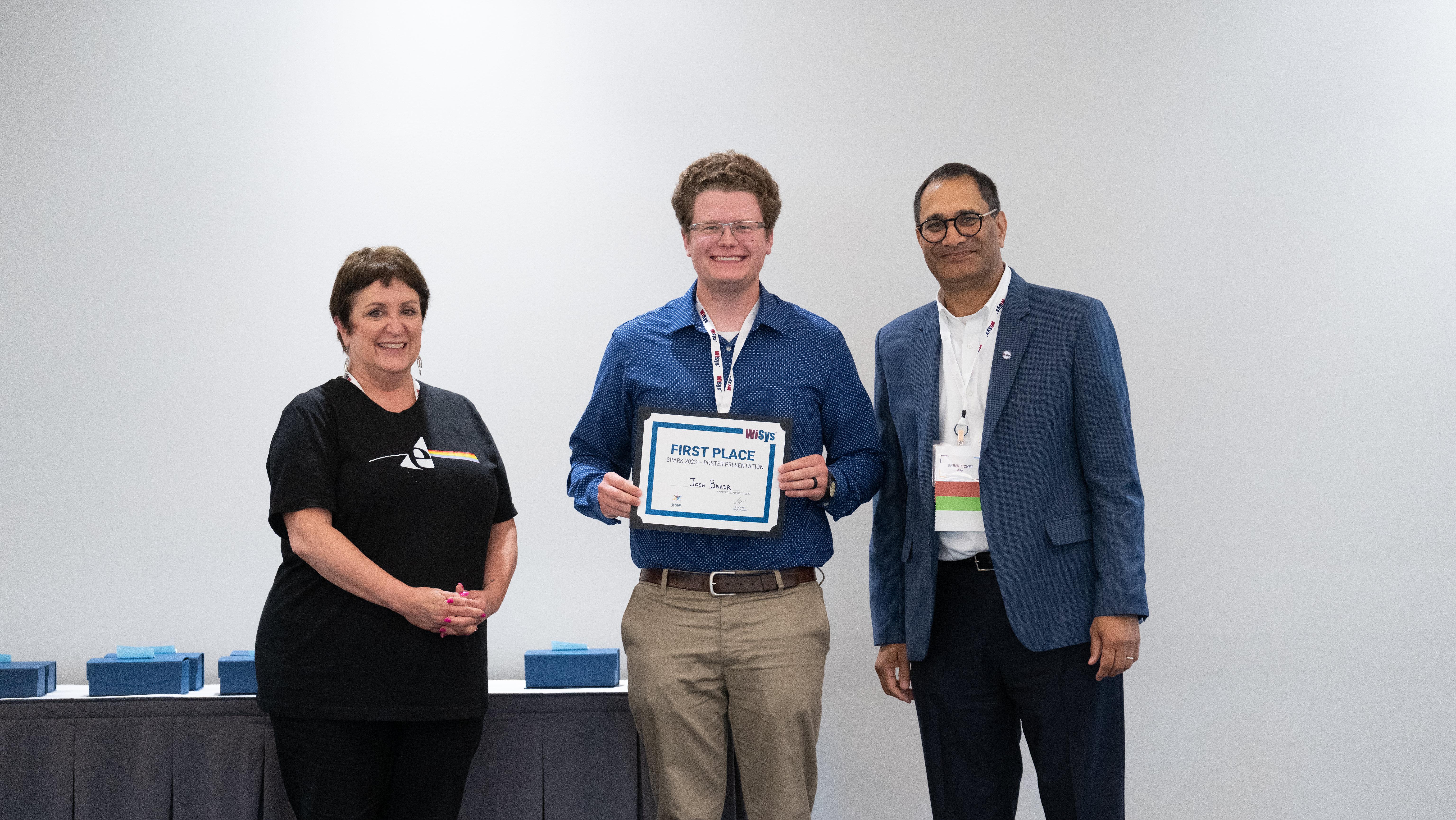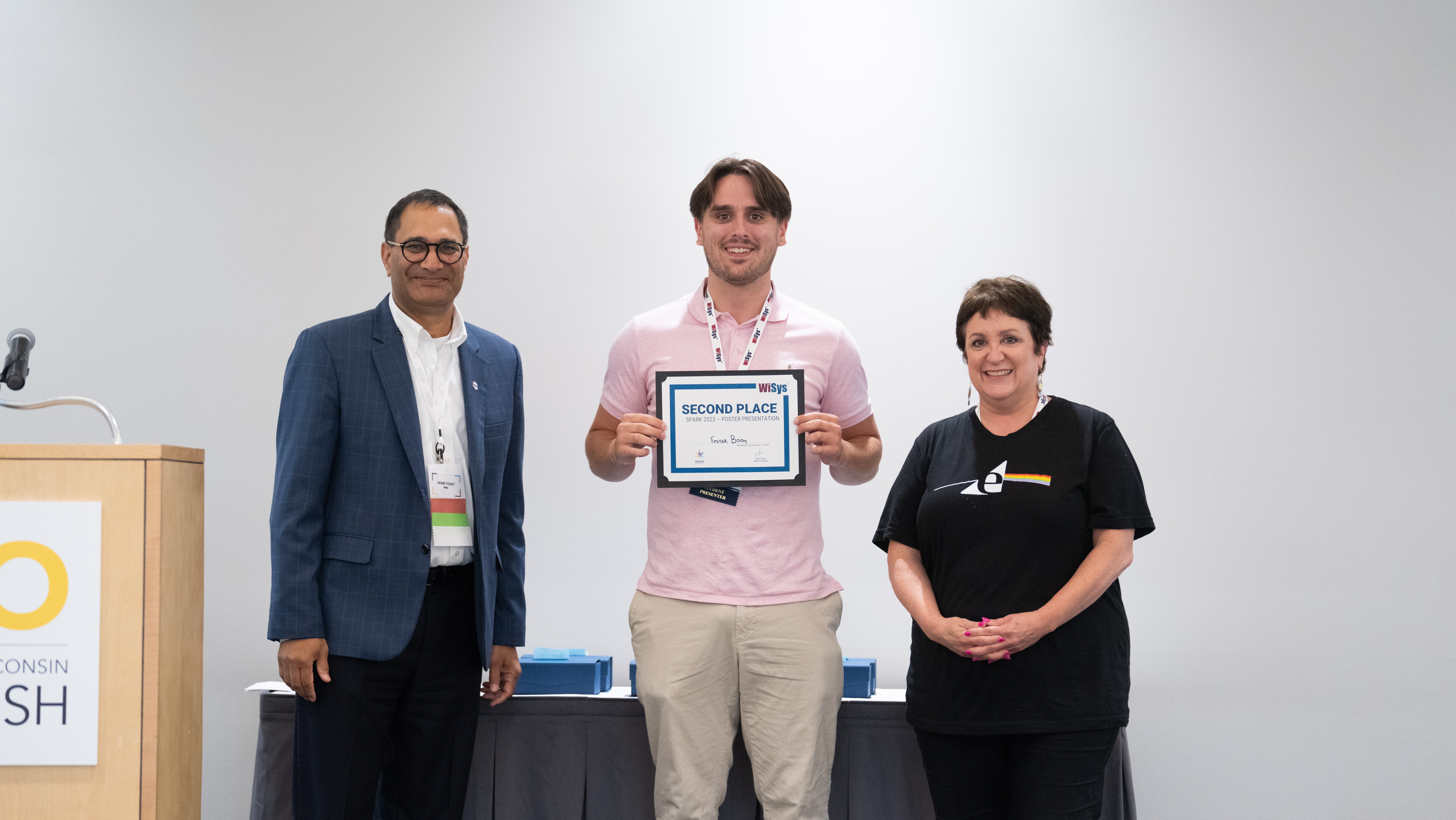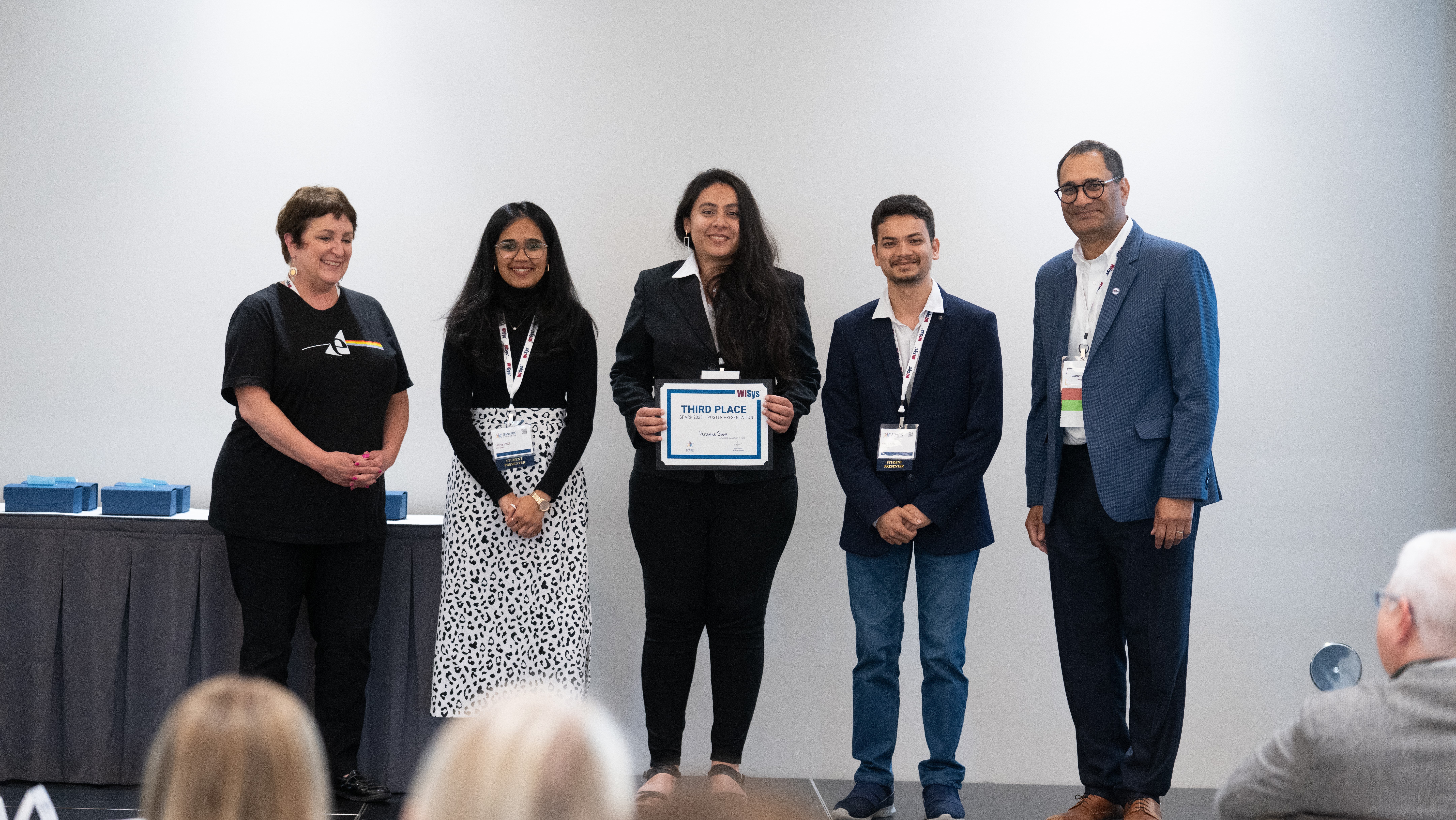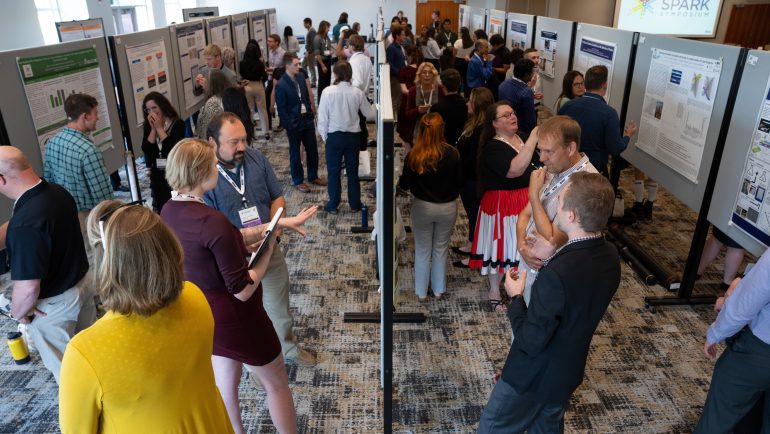OSHKOSH: Students from across the UW System were recognized for their poster presentations at the WiSys Spark Symposium in early August.
The award winners were:
Josh Baker, UW-Eau Claire (1st)
Foster Boom, UW-Whitewater (2nd)
Priyanka Shah, Vraj Shah, and Neha Patil, UW-Stout (3rd)
WiSys puts on this symposium annually to highlight the best and brightest researchers and innovators from around the UW System. This year the event was hosted at UW Oshkosh. The symposium drew interest from upwards of 200 students and faculty, as well as leaders from industry, government, and nonprofits.
The poster session, sponsored by Edge, gave students the opportunity to present their research projects which were judged by a panel of faculty, staff, and industry judges.
First Place

Arjun Sanga, President of WiSys(left) and Nancy Clift, New Venture Partner at Edge(right) congratulate Baker for his award
UW-Eau Claire’s Josh Baker took home the first place prize of $750 for his poster titled “Microcontroller Control System for a Solar Water Heater.” UW-Eau Claire’s Dr. Kim Pierson was the faculty advisor on the project.
Poster Abstract: “A Raspberry Pi Pico Microcontroller was utilized in combination with various other electronic components to make an embedded control system that controls the temperature output of a solar water heater. The system makes use of a hybrid – P control algorithm programmed onto the Raspberry Pi Pico using Micropython. The aim of this project is to help small dairy farmers save money by reducing costs for hot water. Hot water is needed by dairy farmers to flush out milk lines, and solar water heaters that are precisely controlled can efficiently and cost effectively provide this hot water.”
Second Place

Arjun Sanga, President of WiSys and Nancy Clift, New Venture Partner at Edge congratulate Boom for his award
The second place prize of $500 went to Foster Boom of UW-Whitewater for his poster presentation titled, “The Enhanced Bioactivity of Titanium Implants Through Silicide-Bioglass Coatings”. UW-Whitewater’s Dr. Steven N. Girard was the faculty advisor on the project.
Poster Abstract: "In recent years, the field of biomedical engineering has seen significant advancements in the development of biomaterials for implantable devices and tissue engineering applications. Titanium (Ti) and its alloys have gained widespread popularity due to their excellent mechanical properties, but they have low bioactivity (fusion with bone tissue). In this study, we propose a novel approach to enhance the bioactivity of Ti implants and integration of titanium within the human body by coating the titanium surface with bioactive glass, mediated by a titanium silicide layer.”
Third Place

Arjun Sanga, President of WiSys and Nancy Clift, New Venture Partner at Edge congratulate V. Shah, P. Shah, and Patil for their award
The third place prize for the poster presentation went to three students from UW-Stout, Vraj Shah, Priyanka Shah, and Neha Patil, for their poster titled, “Developing Edible Ice-cream Packaging Containers using the Combinations of Whole Wheat Flour, Rice Flour and Corn Flour.” UW-Stout’s Dr. Pranabendu Mitra was the faculty advisor on the project.
Poster Abstract: “Ice cream is a milk-based frozen delicacy that can be produced with a variety of flavors and fruits. Ice cream is a multi-billion market of 13.1 billion USD as recorded in 2021. However, the alarming situation that lies behind is that this industry alone generates tons of non-biodegradable packaging waste which is not even recyclable. So, it is necessary to prepare a packaging option that is edible or biodegradable for the sustainability of the ice cream processing industry. The objective of this study was to develop an edible ice-cream packaging option with different combinations of whole wheat flour, rice flour, and corn flour. The three different packages (40:40:20, 30:40:30, and 20:40:40 of rice flour: wheat flour: corn flour) were developed and the water activity, color profile and migration in polar to non-polar solvents were determined and compared those properties among the three different packaging formulations to determine a suitable packaging option. The statistical analysis ANOVA was conducted. Edible beeswax was coated on the prepared packaging material to decrease the water permeability through the packages. The combination of 20:40:40 had the least scalping in oil and lowest water activity, whereas the highest colorimetric values and favorable textural properties. The results indicated that the package made of 40% wheat, 30% rice flour, and 30% corn flour could be a promising option for moisture and oil resistance and improving color and texture. In conclusion, if this packaging material becomes scalable then it can create a significant impact on reducing the plastic waste required by the ice-cream industry. Also, this packaging is expected to be suitable as a packaging option for some dry foods like nuts, cakes, muffins, and certain semi-solid foods like jam and jelly.”
WiSys is a nonprofit organization that works with faculty, staff, students and alumni of the UW System to facilitate cutting-edge research programs, develop and commercialize discoveries, and foster a spirit of innovative and entrepreneurial thinking across the state.
Edge elevates innovation within Gundersen Health System. We invest in pioneering startups and gather transformative concepts from employees and community members, building ideas into healthcare breakthroughs that benefit us all.

